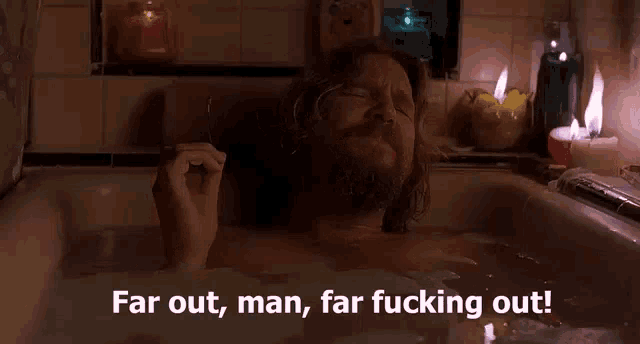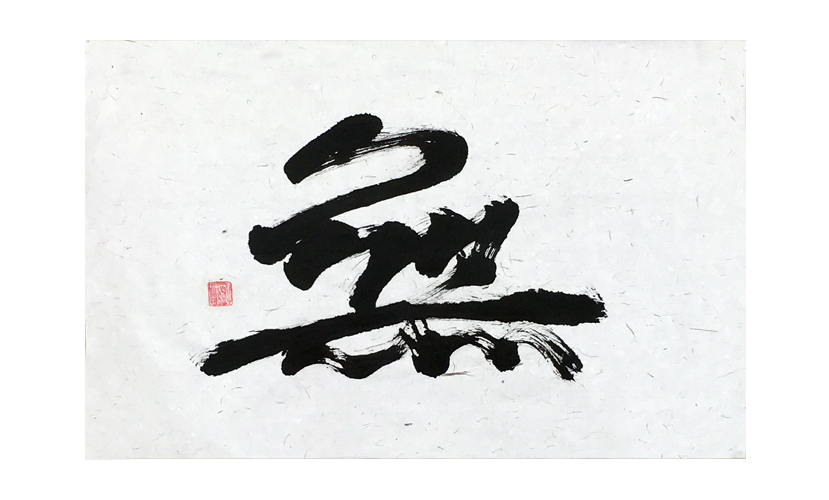-
What is it to be Enlightened?Nishitani's diagnosis is even more radical than Nietzsche's, for he claims that the real problem with Western nihilism is that it is halfhearted: it does not consistently follow through its own inner logic and motivation and so stops short of transforming its partial realization of groundlessness into the philosophical and experiential possiblities of sunyata. — Joshs
It’s always amusing when someone speaking from the firm ground of a system of meaning, Zen Buddhism in this case, talks of groundlessness. -
What is it to be Enlightened?I know very little about enlightenment but I wonder if being any kind of teacher is already a sign of significant attachments. — Tom Storm
Religious attachment is next level, and dubiously justified by the notion that it’s not materialistic in nature, as though that matters when it comes to attachment. -
What is it to be Enlightened?
Meister Eckhardt, the only medieval theologian ever tried for heresy. Not exactly a shining star of dispassion and detachment, if you see it rightly. Not his fault though, once God gets her hooks into a person they will fight tooth and nail for their beliefs.
Honestly, Eckhart Tolle is a better champion of dispassion and detachment. -
What is it to be Enlightened?On the other hand all animals are said to have the Buddha Nature, so... — Janus
So mu. -
Rittenhouse verdictSay you are in the process of brutally raping my wife, choking her (I am divorced by the way, but that's beside the point, it is not a real scenario, but a hypothetical you see) and I come to her rescue wielding a lead pipe. You out of fear for your life stab me in the eye with the long hair pin conveniently located on my wive's night stand. The pin penetrates my eyeball, enters the brain which sibsequently causes my legs to quake and I collapse to the floor.... dead! — Tobias
A more accurate scenario would be if you and the X went to a BLM protest, saw Harry, a weird teenage kid wielding an assault rifle, and chased after him in a threatening manner with the intent of disarming him, and perhaps beating him up a bit for good measure.
A weird teenage kid once pulled out a rifle on me when I was a teen. I got the hell out of there because I knew he was stupid enough to use it, regardless of the consequences. -
What is it to be Enlightened?Are you in the East or the West? — Harry Hindu
West, so report in pounds. -
What is it to be Enlightened?Then what enlightenment is is subjective? — Harry Hindu
How much do you weigh? -
What is it to be Enlightened?What is it to be Enlightened?
To be enlightened is to find out that you were wrong in thinking a particular thought and instead of doubling down you change your mind. — Harry Hindu
Wrong. -
What is it to be Enlightened?Eckardt on Detachment
The mind of him who stands detached is of such nobility that whatever he sees is true and whatever he desires he obtains and whatever he commands must be obeyed. And this you must know for sure: when the free mind is quite detached, it constrains God to itself and if it were able to stand formless and free of all accidentals, it would assume God’s proper nature … The man who stands thus in utter detachment is rapt into eternity in such a way that nothing transient can move him …
Now you may ask what this detachment is, that is so noble in itself. You should know that true detachment is nothing else but a mind that stands unmoved by all accidents of joy or sorrow, honour, shame or disgrace, as a mountain of lead stands unmoved by a breath of wind1. This immovable detachment brings a man into the greatest likeness to God. For the reason why God is God is because of His immovable detachment and from this detachment, He has His purity, His simplicity and His immutability. Therefore, if a man is to be like God, as far as a creature can have likeness with God, this must come from detachment. This draws a man into purity, and from purity into simplicity, and from simplicity into immutability, and these things make a likeness between God and that man …
You should know that the outer man can be active while the inner man is completely free of this activity and unmoved … Here is an analogy: a door swings open and shuts on its hinge. I would compare the outer woodwork of the door to the outer man and the hinge to the inner man. When the door opens and shuts, the boards move back and forth but the hinge stays in the same place and is never moved thereby. It is the same in this case if you understand it rightly.
Now I ask: What is the object of pure detachment? My answer is that the object of pure detachment is neither this nor that 2. It rests on absolutely nothing and I will tell you why: pure detachment rests on the highest and he is at his highest, in whom God can work all His will … And so, if the heart is ready to receive the highest, it must rest on absolutely nothing and in that lies the greatest potentiality which can exist …
Again I ask: What is the prayer of a detached heart? My answer is that detachment and purity cannot pray, for whoever prays wants God to grant him something or else wants God to take something from him. But a detached heart desires nothing at all, nor has it anything it wants to get rid of. Therefore it is free of all prayers or its prayer consists of nothing but being uniform with God. That is all its prayer …
Therefore it is totally subject to God, and therefore it is in the highest degree of uniformity with God and is also the most receptive to divine influence …
Now take note, all who are wise! No man is happier than he who has the greatest detachment.
— Meister Eckhardt On Detachment — Wayfarer
So is this part of a stand-up routine or what? The door hinge bit was particularly hilarious. :lol: -
What is it to be Enlightened?
That is inexplicably funny. Maybe my subconscious has a better memory than my conscious mind. -
What is it to be Enlightened?
You’re the one who’s employed the term “non-attachment”. If you don’t mean what that appears to represent then maybe it’s not the right term. -
What is it to be Enlightened?
-
What is it to be Enlightened?I have no argument with dopamine being a part of the story, and only a part, even in the biological, neurological context. — Janus
I may have misrepresented the work if I suggested that it was presented in a manner divorced from a larger picture or story, although the title alone, Dopamine Nation, should indicate otherwise.
From the experiential perspective it doesn't exist at all — Janus
Not sure what you could mean by that. That we can't actually see the compound function in the body? It is far more real than this 'non-attachment' concept that you appear to put so much stock in.
A major premise of the work is that biological systems seek homeostasis, and without going into the details, the basic result is that too much pleasure eventually leads to pain, and vice-versa. I mention this because of the passing thought I had while reading that ascetic spiritual practices, which may be commonly regarded as virtuous or ego reductive, simply lead to pleasure, of a kind, hence the phrase samadhi junkie. -
What is it to be Enlightened?I seem to remember a Leonard Cohen song with the lyric line something like "Do we have the strength to be alone together?" — Janus
I remember his lyrics stating that there's a crack in everything, and that's how the light gets in. -
Rittenhouse verdict
Hilarious. I'm just glad I wasn't drinking anything while watching. Probably would have ruined my keyboard. John Oliver has done stories on the NRA but he mixes humor and being informative. -
What is it to be Enlightened?The same event can be reinforcing or aversive depending on our success or failure at anticipating it and thus making sense of it within our system of anticipations. — Joshs
A bell may or may not make a dog salivate depending on its conditioning or, as you say, ‘system of anticipations’.
in prediction-based approaches affectivity is bound up with the relationship one senses between anticipation and realization. — Joshs
In this case isn’t affect hedonic (relating to or considered in terms of pleasant or unpleasant interoception)? -
What is it to be Enlightened?I imagine it's a state of equanimity in which thoughts and feelings arise and are clearly seen and felt but are not indulged in. Think about pain; as long as you are embodied pain cannot definitely be avoided. But as, I think it was, Tom Storm told us in another thread recently, his father was able to switch pain off, undergo dental procedures without anaesthetic and said "It only hurts of you let it". — Janus
I suppose that I find this subject particularly interesting now because I just finished a book called Dopamine Nation. As the title indicates, the book delves into the underlying physiology of pleasure and pain. On the most basic level, studies show that without reward (pleasure) and punishment (pain) we really wouldn’t be motivated to do much of anything. So there’s that. On another level, we are a social species, and that being the case, the opinions of other and out relationships to others matter to us. We are dependent on others to maintain our homeostasis. In our development we cannot thrive, or even survive, without the support of others. Laughably, it comes to mind that purpose of religion (including Buddhism) is to bind (form strong attachment) communities.
Isn’t it ironic that this so called “raft” strengthens what it claims to dismantle? -
What is it to be Enlightened?For me there are different kinds of beauty. There is moral beauty for example. A saint would be morally beautiful. To admire something would be to love it in some sense it seems to me. — Janus
Even a saint isn’t perfect and given sufficient time would surely eventually disappoint. How could someone experience disappointed if they weren’t attached to this moral beauty? -
What is it to be Enlightened?But in any case, is it the senses that tell you that or do you reach that conclusion from something you've read or is it just an intuition you have? — Janus
Even if it were something that I experienced with my senses, I couldn’t know what I was experiencing without all the previous sense experience that built my internal representation of the world. -
What is it to be Enlightened?the psychotic still has a mind, however unbalanced it might be. — Janus
A mind that would not exists without sensory input in its development. Minds don’t just pop into existence. -
What is it to be Enlightened?If I feel love for someone, do I need to be attached to that love in order to act lovingly towards them? — Janus
In non-attachment, why would you love any particular person? -
What is it to be Enlightened?That, even if true, is not the point. — Janus
I know that my objections are off-point. Regarding how true it is, how long do you think your mind would last without any sensory input? Maybe a few months or a year? -
What is it to be Enlightened?It is meaningless to say that anyone doesn’t rely on sensory knowledge because minds are built on it. No sensory input, no mind.
— praxis
Is it the senses that tell you that? — Janus
Minds require (are completely dependent on) sensory input to simply exist. -
What is it to be Enlightened?
I wouldn’t claim that it’s impossible either. It is a rather dreary goal though, to be an uncaring zombie. -
What is it to be Enlightened?Neither [Parm & Ploti] rely on or espouse empirical or sensory knowledge but aim at an insight into a 'higher truth' through visionary or non-ordinary states. — Wayfarer
It is meaningless to say that anyone doesn’t rely on sensory knowledge because minds are built on it. No sensory input, no mind. -
What is it to be Enlightened?You've tried and found it impossible? — Janus
You have no attachment to anything or anyone, including yourself?
praxis

Start FollowingSend a Message
- Other sites we like
- Social media
- Terms of Service
- Sign In
- Created with PlushForums
- © 2026 The Philosophy Forum



